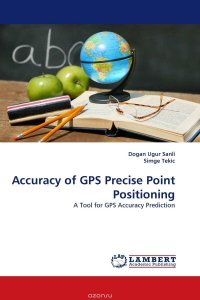GPS is effectively used in science and engineering since the release of official IGS precise orbits in 1994. Various surveying and processing methods are available for GPS, and the accuracy level depends on the method used. It is useful to predict the accuracy of GPS prior to a field survey for the purposes of network design. Today, accuracy prediction formulas are available for relative positioning that requires two or more GPS receivers. Precise Point Positioning (PPP) from NASA''s GPS software GIPSY revolutionized the GPS processing since it provides methods leading to mm positioning without a need of a reference station. GIPSY user community is growing rapidly and at this instance it would be good to provide a tool assessing the acuracy of PPP. This book targets both practitioners and researchers. It should also be a useful guide for the relative positioning users for comparing the results derived here with those of published previously. The literature review... Это и многое другое вы найдете в книге Accuracy of GPS Precise Point Positioning (Dogan Ugur Sanli and Simge Tekic)
Accuracy of GPS Precise Point Positioning Dogan Ugur Sanli and Simge Tekic
Подробная информация о книге «Accuracy of GPS Precise Point Positioning Dogan Ugur Sanli and Simge Tekic». Сайт не предоставляет возможности читать онлайн или скачать бесплатно книгу «Accuracy of GPS Precise Point Positioning Dogan Ugur Sanli and Simge Tekic»
